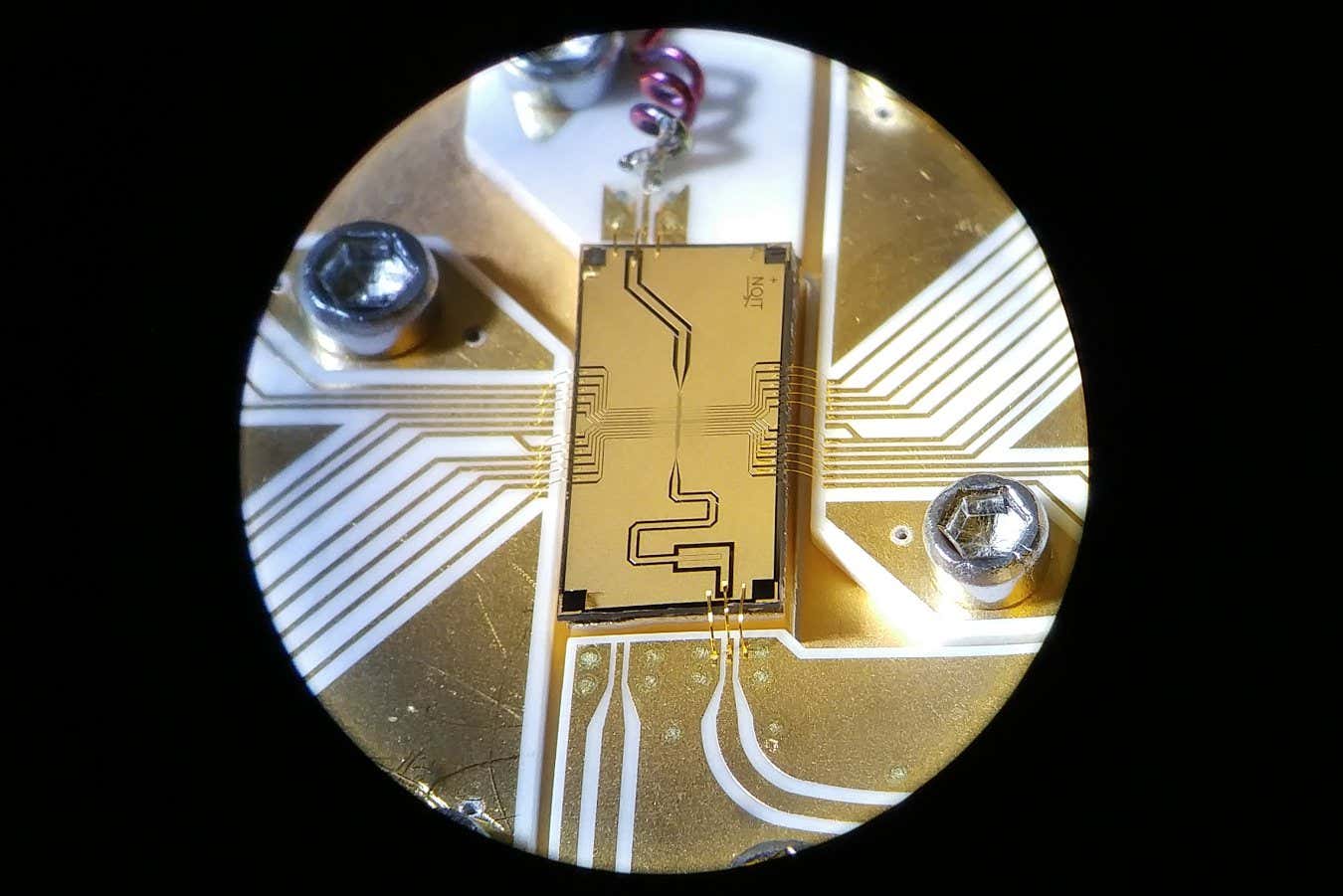Microwaves can control a single quantum bit more precisely than ever before, creating a device similar to a quantum transistor – and potentially making quantum computers more reliable
By Karmela Padavic-Callaghan
2 June 2025
The ion-trap chip used to test a single qubit
Dr Jochen Wolf and Dr Tom Harty
A new record has been set for extremely precise control over qubits, the building blocks of quantum computers. This advance could lead to quantum computers that make fewer errors – if it can be replicated at a larger scale.
Read more
Google's claim of quantum supremacy has been completely smashed
To manipulate or encode information into a qubit, a quantum computer can use a set-up called a single-qubit gate to change the quantum bit’s state, similar to the way one or more transistors manipulate a classical bit. Typically, this gate will fail at least once in every 1000 state changes – and sometimes even more frequently. Because computations usually require millions of operations and hundreds of qubit gates, these errors quickly accumulate and make computations unreliable.
Molly Smith, Aaron Leu and Mario Gely, all at the University of Oxford, and their colleagues have now made a single-qubit gate that only produces such errors once in about 10 million cases.
“The probability of being struck by lightning in a year is about three times higher than the probability that this qubit makes an error,” says Leu.
Leu and his colleagues made their qubit from a positively-charged calcium ion. They used electromagnetic forces to keep it trapped above a chip, which was equipped with tiny components that could emit well-controlled microwaves. These microwaves were key: by shooting them at the qubit, the researchers could create a gate that changed the qubit’s quantum state extremely reliably.
